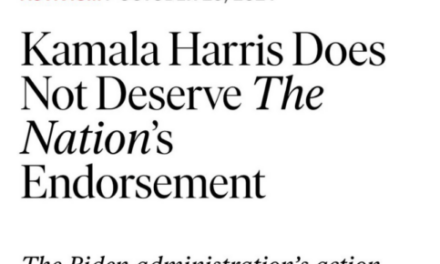We support our Publishers and Content Creators. You can view this story on their website by CLICKING HERE.
Joe Biden unveiled his 2025 budget proposal earlier today. In general, presidents’ budgets are hardly worth discussing. They project revenue and spending over the next ten years, and if you go back and look at them a few years later, they usually bear no relation to reality. And, in this instance, there is zero chance that Congress will pass anything resembling Biden’s budget, which can best be seen as a campaign document.
But, for what it is worth, this is what the Wall Street Journal had to say about it:
President Biden proposed Monday a $7.3 trillion budget for the next fiscal year that would raise taxes on wealthy people and large corporations, trim the deficit and lower the costs of prescription drugs, child care and housing.
Other than spending $7.3 trillion and raising taxes, it wouldn’t do any of those things. For purposes of comparison, federal spending in 2000, the last year of the Clinton administration, was $1.79 trillion. So Biden wants to spend almost exactly four times that much.
The fiscal 2025 budget would cut the deficit by $3 trillion over the next decade, and it would raise taxes by a net total of $4.9 trillion, or more than 7% above what the U.S. would collect without any policy changes.
Those hypothetical deficit cuts depend on economic forecasts in the out-years that won’t come true. The only meaningful fact is that Biden wants to raise taxes by nearly $5 trillion.
Biden’s purported budget is largely an exercise in fantasy:
The budget leaves some blank spaces. It lists principles for shoring up Social Security, without specifying a plan. It calls for paying for extensions of tax cuts for most households after 2025 but doesn’t detail how that would be paid for. And it calls for restoring the expanded child tax credit, but only temporarily, lumping that into the broader 2025 tax debate.
Biden’s budget proposes absurd taxes on corporations and “the rich”:
The budget repeats many past Biden tax-increase proposals, including higher tax rates on corporations and high-income individuals along with minimum taxes on the wealthiest Americans’ unrealized capital gains.
Which is insane. If the government taxes unrealized gains on unsold securities when the market goes up, will it write checks to investors when the market is down? Logically, it would have to, but of course that is not part of Biden’s proposal.
Biden rolled out several new tax increases last week, such as raising his new corporate alternative-minimum-tax rate to 21% from 15% and denying deductions when corporations pay any workers, not just top executives, more than $1 million.
The net effect of Biden’s proposals would be to give the United States one of the heaviest tax burdens in our history, equaled only once since World War II.
Is that because people are dying to give the federal government more money to waste? No, it is because many people are too naive to understand that, as has been said a million times, corporations don’t pay taxes, they collect them. Those taxes are actually paid mostly by customers (i.e., all of us) and secondarily by employees (i.e., most of us). But Biden’s budget is not about economics or, for that matter, mathematics, as the numbers will never add up. Rather, it is about politics:
Biden’s advisers are betting that a focus on lowering costs for families will help push the president to re-election.
Needless to say, Biden’s budget, if actually enacted, would raise costs for families, not lower them. Fortunately, there is zero chance of that happening.

 Conservative
Conservative  Search
Search Trending
Trending Current News
Current News 



